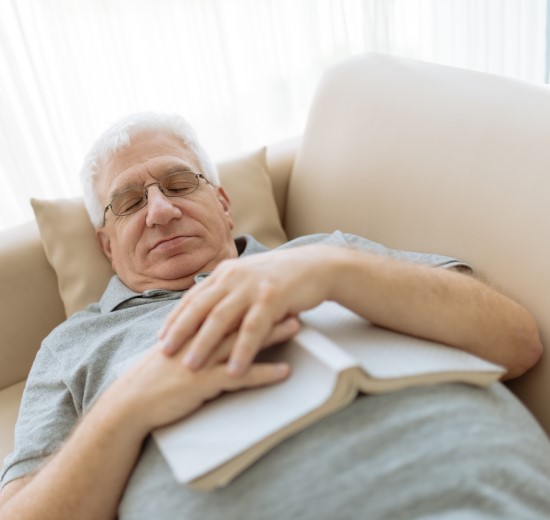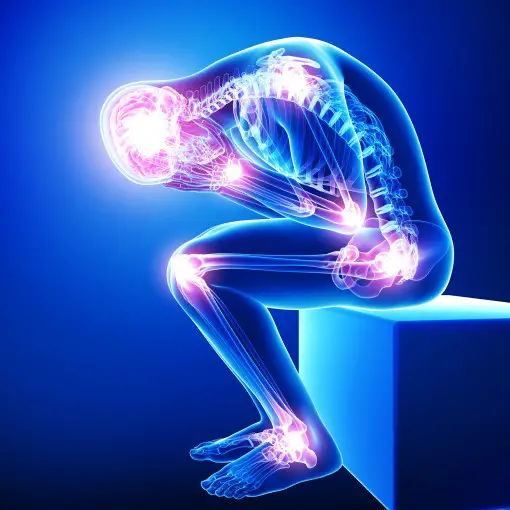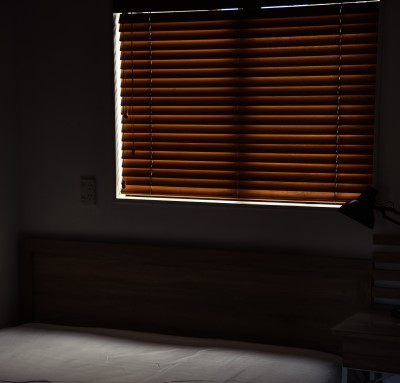
Can napping help arthritis? – Why it might and how best to do it
By Jason Wooden, PhD | October 15, 2023
Since there are many connections between pain and sleep, there are multiple ways in which taking a nap could with arthritis. Studies confirm that quality rest can improve pain symptoms for people with arthritis. When napping, experts suggest you avoid napping for too long or too late in the day.
In this article, we talk about:
1) Why we’re curious
2) The link between pain, sleep, and napping
3) Can napping REALLY help arthritis?
4) Napping tips for people with arthritis
5) Have you tried these pain remedies?
Why we’re curious whether napping can help arthritis
If you’re like me and millions of others who suffer from chronic pain, you’re always on the lookout for more ways to get relief.
For me, it’s nagging pain in the shoulders and neck that started about 4 years ago. Since then it’s been a roller coaster of ups and downs so I can understand why people with arthritis are curious what else can help including napping.
My guess is there are plenty of other people asking the same.
After all, arthritis is an inflammatory condition that affects more than 350 million people worldwide.
In the US, 1 in 4 adults have been diagnosed with some form of arthritis.
Waking up with stiff and painful joints in the morning can take the fun out of anyone’s day.
Walking and climbing stairs become a burden…
Even everyday tasks such as cooking, cleaning, or folding laundry are challenging…

It’s no surprise that 1 in 5 adults with arthritis in the US struggle with anxiety or depression.
And it’s fair to ask whether something as simple as taking a nap can make a difference.
After all, what’s there to lose?
So, can taking a nap really help arthritis?
Or is it just an old wife’s tale?
Let’s take a look at what we know and how best to do it.
The link between pain, sleep, and napping
It turns out there’s a strong link between sleep and pain. In fact, they appear to share similar pathways and chemical messengers in the body.
So, it should be no surprise that there are multiple ways in which sleep can affect pain.
First, poor sleep can actually make your pain worse.
It can lower your pain threshold and tolerance.
Researchers have found that poor sleep affects pain centers on the brain which can change how you perceive and react to discomfort. One study with healthy volunteers found that after 24 hours of sleep deprivation sensitivity to pain from pressure and cold was heightened.
Another way sleep is linked to pain is because of its role in fighting the effects of stress on the body.

Stress can make pain worse whether it’s extra muscle tension or the release of hormones like cortisol which trigger inflammation. Also, did you know stress can also affect how you perceive pain?
Regular sleep is a natural way to lower stress hormones and fight it’s effects of stress on the body.
What this shows is the importance of sleep and staying rested for pain management.
Can napping really help arthritis?
Whether napping can help with arthritis symptoms hasn’t been directly studied.
However, by now it should be obvious how taking a nap could help given the many links between sleep and pain.
Since poor sleep can worsen pain, it’s not too big of a jump that getting extra rest could lessen pain.
If you’re feeling tired, a nap can help you feel more rested and keep fatigue from heightening your sensitivity to arthritis pain. It could also help fight stress and its effects on arthritis.
Studies show that quality rest can improve pain symptoms for arthritis patients.
One study involving 367 older adults with osteoarthritis tested whether improving their sleep could help with managing their pain. The researchers found that short-term improvements in sleep quality led to patients experiencing less chronic pain.
Researchers at the University of Sydney have performed a more rigorous study. They analyzed the data from 24 separate clinical trials involving individuals who suffer from osteoarthritis and spinal pain. The results showed that helping these patients sleep better improved their pain by 14% compared to control or placebo.
As far as what’s actually happening in the body, recent research suggests that promoting sleep health can help reduce the risk of systemic inflammation in older men with osteoarthritis.
Lastly, another way a nap could help arthritis is by keeping you out of the vicious cycle of pain and poor sleep.
That’s because people who sleep poorly experience wake up fatigued and experience more pain while pain makes it harder to sleep.
Best way to nap to help your arthritis
There’s a right way and a wrong way to nap.
First, similar to sleep, you should nap somewhere that is dark, quiet, and a comfortable temperature. Secondly, napping for too long or too late in the day can make it harder to fall asleep at night.

If you’re not careful, a nap can also make you feel groggy when you wake up.
Experts suggest that you:
- Keep your naps short (30 minutes or less)
- Nap earlier in the day
- Give yourself time to wake up
Finally, you should sleep on a comfortable surface and in a comfortable body position.
(The Arthritis Foundation lists some useful tips here.)
If you have sleep apnea, be sure to use your CPAP machine so that your naps will be more restful.
Other things besides napping to do for arthritis
Obviously, napping isn’t the only thing you can do for arthritis. Depending on your situation, there are plenty of remedies that may help that don’t involve drugs or surgery:
Physical activity
Studies have found that exercise can help people manage pain. Gentle activities such as walking or swimming can help improve your recovery and pain threshold. Learn more

Physical therapy
Physical therapy uses heat, cold, exercises, massage, and manual manipulation. It can help strengthen muscles and increase flexibility. It’ll also increase blood flow and help reprogram your nervous system to be less sensitive to pain. Learn more
Try an anti-inflammatory diet
These diets focus on avoiding specific foods such as refined carbs that promote inflammation and eating more foods believed to fight inflammation. Learn more

Natural supplements
There’s a variety of natural supplements that may help with pain because of their anti-inflammatory, anti-oxidant, relaxation, or other pain-relieving effects. It’s important to keep in mind that some have been tested more than others.
So, be sure to check with your doctor or an alternative medicine practitioner to see what would make sense for you. Learn more
Among the better known ones are:
- Feverfew
- Peppermint essential oil
- Ginger
- Turmeric
- Lavender essential oil
- Rosemary essential oil
Acupuncture
This technique involves stimulating specific points on the body with thin needles. Research suggests it can help some types of pain. It should be done by a well-trained professional. Learn more
Biofeedback
Biofeedback uses electronic devices to increase your awareness of your body functions so you can learn to control them. Depending on the specific cause, it may help with chronic pain. Learn more
Massage therapy
This therapy involves massaging the soft tissues of the body. It can help relieve pain through relaxing painful muscles and joints, reducing stress and anxiety, and overriding pain signals. Learn more
Psychotherapy
Pain has psychological and emotional factors. Psychotherapy can change the way you cope with pain and change the stress response in the brain responsible for the release of chemicals that make pain worse. Learn more
Music therapy
Studies show that the right music can promote relaxation which can alleviate anxiety and stress that contribute to pain. Learn more
Tai chi
Studies have shown Tai chi can help people manage pain. It uses breath control, meditation, and gentle movements to stretch and strengthen muscles. It can also relax the body and reduce stress. Learn more

Why does pain go away when you sleep?
10 home remedies worth a try if shoulder pain is keeping you from sleeping on your side
12 things to try if you can’t sleep because of sore muscles
What to try if pain meds are keeping you wake
What to try if IBS pain is ruining your sleep
Can pain make sleep apnea worse
How I’m using Joy Organics CBD softgels for pain and better sleep
How I’m using turmeric curcumin for inflammation, pain, and better sleep
About Arthritis and RA, globalranetwork.org (source)
National Statistics, CDC website (source)
Does Poor Sleep Worsen Arthritis?, News-Medical.Net (source)
Pain and Sleep, 2023, sleepfoundation.org (source)
Poor sleep can change your reaction to pain, 2019, Harvard Health Publishing (source)
Total sleep deprivation increases pain sensitivity, impairs conditioned pain modulation and facilitates temporal summation of pain in healthy participants. PLoS One. 2019; 14(12): e0225849. (source)
Pain in Times of Stress, Malays J Med Sci. 2015 Dec; 22(Spec Issue): 52–61. (source)
How Stress Affects Arthritis, Arthritis Foundation website (source)
Short-term improvement in insomnia symptoms predicts long-term improvements in sleep, pain, and fatigue in older adults with comorbid osteoarthritis and insomnia. Pain. 2014 Aug; 155(8): 1547–1554. (source)
Sleep interventions for osteoarthritis and spinal pain: a systematic review and meta-analysis of randomized controlled trials. Osteoarthritis and Cartilage Volume 27, Issue 2, February 2019, Pages 196-218 (source)
Arthritis, Sleep Health, and Systemic Inflammation in Older Men. Arthritis Care Res (Hoboken). 2020 Jul; 72(7): 965–973. (source)
How to get the most out of napping, 2023, Mayo Clinic Health System website (source)
Position Yourself for a Good Night’s Sleep, Arthritis Foundation website (source)
5 Ways to Manage Arthritis, CDC website (source)
Connect with us:
About Us
Better Sleep Simplified® was founded as a place for you to get clear and well-researched information.
Our goal is to make sure you know about your options so that you take action sooner rather than later.
Check us out on YouTube:
Watch and Learn
Helpful sleep tips, interesting sleep facts and statistics you want to know about
Affiliate Disclosure
This site is a participant in the Amazon Services LLC Associates Program and other affiliate advertising programs designed to provide a means for sites to earn advertising fees by advertising and linking to them.
Important: BetterSleepSimplified.com is for informational purposes only and is not intended or implied to be a substitute for professional medical advice, diagnosis, or treatment. Always consult a physician for sleep and health concerns. See additional information.
